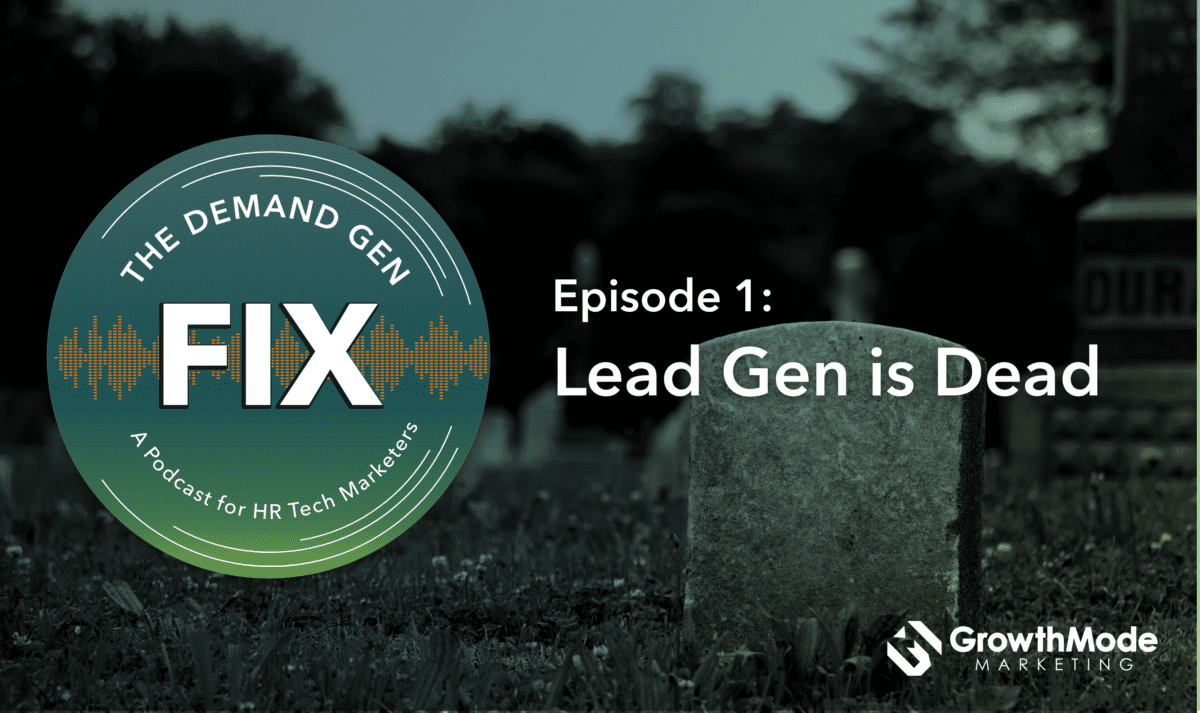Let’s talk about the secret power that is changing the face of HR in the modern workspace – HR technology platforms. These nifty tools have dramatically reshaped our workplaces, making the tedious tasks of managing human resources way more efficient and less time-consuming. HR teams are no longer tied up with stacks of paperwork and endless spreadsheets.
Imagine you’re rushed off your feet trying to manage payroll processing, recruiting talent, benefits administration – and don’t get us started on workforce analytics – it’s quite a juggling act, isn’t it? We at GrowthMode Marketing hear you, and understand the struggles you face as an HR professional in today’s bustling corporate world.
However, the introduction of HR technology tools offers a glimmer of hope. They’re not just about easing workflow – they’re about giving HR the power to rise above the mundane tasks to produce meaningful, tangible results. We’re not simply talking about automating payroll or managing employee data – it goes deeper than that. These platforms help HR contribute strategically to the business, driving not just employee satisfaction but also business profitability. A revolutionary shift indeed!
Quick Snapshot: What Exactly is an HR Technology Platform?
– Definition: A digital solution that simplifies and optimizes daily HR tasks and overall HR objectives of an organization.
– Examples: Tools for payroll, employee benefits administration, recruitment, applicant tracking, performance management, and workforce analytics.
– Role: eases administrative load, allows for strategic contribution to business, improves employee experience, and promotes the company’s mission, value, and goals.
Understanding HR Technology Platforms
Definition and Purpose of HR Technology Platforms
HR technology platforms are digital solutions designed to manage and optimize the daily HR tasks and overall objectives of an organization. They’re like a Swiss Army knife for HR teams, packed with tools to automate and streamline a wide range of functions. The goal? To free up time and resources, allowing HR staff to focus on more strategic tasks that contribute to the business growth.
These platforms serve as a bridge between human resources and technology, helping organizations to manage their workforce more effectively. They are designed to streamline HR processes, making them more efficient, accurate, and user-friendly.
Examples of HR Technology: Payroll, Employee Benefits, Recruiting and Applicant Tracking
A broad range of tasks falls within the realm of HR technology. Here are a few key examples:
- Payroll: HR tech simplifies the process of managing employee compensation, ensuring everyone gets paid accurately and on time.
- Employee Benefits: Benefits administration can be complex, but HR tech helps to streamline the process, making it easier for employers to offer, and employees to select and manage, their benefits.
- Recruiting and Applicant Tracking: HR tech can also support the talent acquisition process, from posting job ads to tracking applicants and managing the recruitment pipeline.
Each of these tools plays a vital role in automating and optimizing HR tasks, leading to increased productivity and efficiency.
The Digital Technology for HR: Data and Analytics in Employee Lifecycle
Digital HR technology goes beyond automation. It’s about harnessing the power of data and analytics to gain insights into every stage of the employee lifecycle. This includes recruitment, learning and development, retention, and even offboarding.
The goal of digital HR is to measure progress and pivot quickly if a strategy isn’t working. This approach allows HR teams to make data-driven decisions, leading to better outcomes for both the organization and its employees.
In the world of HR, technology isn’t just about making life easier. It’s about using data and analytics to drive strategic decision-making and create a better work environment for everyone. So, when you’re considering an HR technology platform for your organization, remember to look beyond the basics. The right platform will not only automate your HR processes but also provide the insights you need to manage your workforce effectively.
Next, we’ll explore how to choose the right HR technology platform for your specific needs. Be sure to check out our HR tech and hr technology companies pages for more in-depth information.
The Importance of Choosing the Right HR Technology Platform
Choosing an HR platform is a crucial decision that can significantly impact your company’s efficiency and productivity. To make the best choice, you must consider the features you need, your budget, customer service, user interface, and integration capability.
Identifying the Features Your Company Needs
Firstly, you need to identify what features your company needs. Take a close look at your current HR processes, from onboarding to offboarding, to determine what’s working and what needs improvement. Most HR technology platforms offer all-in-one packages that can handle every task that your HR department faces. However, many platforms are highly customizable, allowing you to keep your existing health insurance and 401(k) benefits if that’s what you prefer.
Considering Your Budget and Evaluating Cost Options
Budget is a crucial factor in your decision. If you’re looking for an all-in-one provider with standard pricing options, you can easily narrow down the field by eliminating companies without transparent pricing. Conversely, if you’re seeking a tailored solution that allows you to use some of your existing software while adding new tools, you can quickly eliminate providers that only offer specific packages with set pricing.
The Role of Customer Service and Reviews in Choosing a Software Provider
Customer service and reviews play a significant role in your decision. While you should take customer reviews with a grain of salt, they still provide valuable insights into a software provider’s performance. During the sales process, you may encounter excellent service, but will that continue a few months down the line? If not, customer reviews can provide that crucial information. If you don’t have access to full-time HR staff, you may want to prioritize access to a dedicated customer support manager.
Evaluating the User Interface and Employee Skill Level
The user interface of your chosen HR technology platform should be user-friendly and cater to the skill level of your employees. Some platforms offer free trials or interactive product tours, allowing you to test the platform before committing. Remember, a platform that is easy to navigate and understand can greatly increase efficiency and productivity.
Integration with Other Tools or Software Programs
Finally, don’t forget about integration. If your company uses specific communication tools, time tracking programs, or accounting software, you want to ensure that your chosen HR platform can integrate smoothly with these tools. Most top HR platforms integrate with major business software programs like QuickBooks, Google Suite, Asana, and Microsoft Office.
Choosing the right HR technology platform is a process that requires careful consideration. By taking into account your company’s unique needs, budget, and employee skill level, you can find a platform that can revolutionize your HR processes and drive your company’s growth. Be sure to explore our hr technology page for more insights into this rapidly evolving field.
Decoding HR Technology Systems: HRIS, HCM, and HRMS
HR technology platforms come in various forms, each with its unique focus. To choose the best fit, it’s essential to understand the differences between HRIS, HCM, and HRMS. Let’s break down these acronyms and see what makes each one special.
Understanding HRIS: Managing People, Policies, and Procedures
HRIS, or Human Resource Information System, is a type of HR technology platform designed to manage people, policies, and procedures. These systems are typically used by businesses that employ U.S. citizens. HRIS software makes it easy to manage HR tasks such as record keeping, employee data management, and policy administration, among other things.
The Scope of HCM: Talent Management and Global Capabilities
Next up is HCM, or Human Capital Management. HCM software includes every element of an HRIS but adds Talent Management and global capabilities. This means HCM systems can handle multi-lingual, multi-currency, and country-specific formatting needs. This is ideal for companies with a global workforce, as it allows them to manage their human capital more effectively.
HRMS: Covering All Elements of HRIS and HCM
HRMS, or Human Resource Management System, is the most comprehensive of the three. HRMS software providers typically cover every element of an HRIS, and many include the capabilities of an HCM. This kind of platform is great for businesses that need extensive HR functionality, including payroll and talent management.
Clarity in Definitions and Expected Functionality for Evaluating HR Technology Vendors
As you can see, each of these systems has its strengths and areas of focus. Understanding these differences can help you choose the right HR technology platform for your business. Remember, the key is to find a solution that aligns with your company’s needs and goals.
HR technology can seem complicated, but when we break it down, it’s all about choosing the right tools to help your business thrive. Whether you need basic HR functionality, talent management, or a comprehensive solution, there’s a platform out there for you.
To learn more about these systems and how they can benefit your business, check out our pages on HR tech and hr technology companies.
Case Study: TriNet’s Comprehensive HR Platform
TriNet, an HR technology platform, is a prime example of a comprehensive solution that supports businesses from start to finish of an employee’s lifecycle. This case study illustrates how TriNet utilizes HR technology to streamline HR processes and enhance productivity.
Supporting the Entire Employee Lifecycle: From Recruiting to Performance Management
TriNet’s platform offers robust HR support, assisting businesses with everything from recruiting and onboarding to performance management. This eliminates the need for multiple disparate systems, simplifying the HR process and freeing up more time for strategic tasks.
Payroll, Benefits, and Time Off Requests: The TriNet Mobile App
The TriNet Mobile app allows employees to conveniently access payroll information, enroll in benefits, and request time off. Managers can also use the app to make administrative changes such as payroll adjustments, giving them the flexibility to manage their HR needs from anywhere.
Workforce Analytics Software for Generating Visualizations and Detailed Reports
TriNet’s workforce analytics software enables businesses to turn their HR data into actionable insights. With just a few clicks, it’s easy to generate detailed reports and visualizations that can inform strategic decisions.
Simplifying Benefits Enrollment and Managing HR Documents Securely
With TriNet, the benefits enrollment process is no longer a headache. Its user-friendly application simplifies the process, complete with a dynamic cost calculator and plan design comparisons. Additionally, the platform ensures security and ease in document management, making the tracking, validation, and request of HR documents a breeze.
Streamlining Approval and Reimbursement Process for Expenses
TriNet’s expense management system eliminates common hassles associated with expense reporting. Employees can easily create, submit, and approve expense reports online or through the mobile app, and the data can be seamlessly transferred to payroll for reimbursement.
Expedited Talent Acquisition and Performance Management Tools
Finally, TriNet offers expedited talent acquisition and performance management tools. Its integrated systems help companies analyze worker-related data, enhancing the recruitment process, and facilitating the development of performance management strategies.
Embracing a comprehensive HR technology platform like TriNet can revolutionize the way your business manages HR tasks. It not only makes HR processes more efficient but also provides valuable insights that can drive strategic decision-making.
To learn more about how HR tech can transform your business, explore our other articles on HR tech and hr technology companies.
The Impact of HR Tech on HR Professionals and Company Culture
Streamlining Essential HR Functions: Filing, Communication, Talent Acquisition, and Management
HR technology platforms are game-changers. They simplify and automate essential HR functions, paving the way for a more efficient and productive work environment. For instance, self-service technology empowers employees to handle their own administrative tasks, such as accessing tax forms or pay stubs. This alleviates the workload for HR professionals, freeing them up to focus on strategic initiatives.
One key aspect of a successful HR tech platform is its ability to streamline communication. Tools like Slack and Zoom have made it easier for teams to collaborate, regardless of their physical location. In addition, HRIS systems can help manage talent acquisition and management, making these processes more efficient and effective.
Improving Recruitment Practices, Supporting Managers, and Boosting Engagement
Another significant impact of HR tech is its role in recruitment. Innovative solutions like AI-powered hiring platforms can help identify potential candidates based on skills and experience, rather than relying solely on traditional methods like resumes and cover letters. This makes the hiring process more equitable and efficient.
By providing managers with the tools and data they need, HR tech platforms can support managers in their role, helping them make informed decisions and boost team engagement. Platforms like Continu aim to increase employee engagement through social, mobile, and connected training experiences.
The Role of HR Tech in Remote Work and Work-Life Balance
The shift towards remote work has been significantly catalyzed by HR tech. Platforms that allow teams to collaborate remotely have made it possible for people to work from home or anywhere else. This flexibility can improve work-life balance, but it also introduces new challenges.
HR tech can help address these issues by enabling HR professionals, managers, and team members to connect, build relationships, and address mental health issues that may arise from workplace stress or remote working conditions.
The Importance of HR Tech in Modern HR Strategy
In today’s digital world, technology is embedded in every aspect of work. For HR, this means leveraging tech to optimize work and bring value to the company. From drafting documents to analyzing data, HR tech has made it possible for HR professionals to build a strategy that aligns with the company’s mission, values, and business goals.
Ultimately, HR tech platforms are an essential part of a modern HR strategy. They not only streamline and automate processes but also provide valuable insights that can drive strategic decision-making. By embracing HR tech, businesses can not only improve their HR functions but also foster a positive company culture.
In the next section, we’ll delve deeper into specific types of HR technology systems, including HRIS, HCM, and HRMS, to help you understand which might be best for your company’s needs. Stay tuned for more insights into the world of HR technology.
Conclusion: Embracing the Power of HR Technology Platforms for Business Growth
As we’ve seen through our exploration of the HR technology platform world, these tools have become essential elements in fostering a productive, engaged, and well-managed workforce. They streamline HR tasks, foster open communication, and support strategic decision-making.
HR technology platforms are not just tools to automate routine tasks. They are powerful solutions that can transform the way your organization operates, leading to increased efficiency, productivity, and employee satisfaction. From payroll and benefits management to recruiting, onboarding, and performance tracking, these platforms cover a wide spectrum of HR functions.
But, it’s not just about picking any HR technology platform. It’s about finding the technology that fits your company’s specific needs and culture. As HR tech experts, we understand this well. We believe in leveraging the power of technology to revolutionize work, making it more efficient, engaging, and personally fulfilling.
Moreover, the COVID-19 pandemic has underscored the importance of HR technology in supporting remote work and fostering a healthy work-life balance. As such, HR tech has become indispensable in the modern workplace, and its adoption is set to continue rising.
To survive and thrive in this digital age, companies must stay ahead of the curve. As the HR tech market continues to grow and evolve, businesses need to keep up with the latest trends and innovations. This includes leveraging artificial intelligence and automation to improve HR functions, and using data and analytics to drive strategic decision-making.
At GrowthMode Marketing, we understand the challenges that come with this rapidly changing landscape. That’s why we’re committed to helping HR technology companies navigate these changes and grow their businesses. From inbound marketing and social media strategies to partnership marketing and online advertising, we leverage a wide range of strategies to help our clients increase their digital footprint, build brand awareness, and drive growth.
In the end, embracing HR technology is not just about staying competitive. It’s about taking your business to the next level. So, are you ready to harness the power of HR technology to revolutionize work and drive your business growth? Feel free to reach out to us to learn more about how we can help you make the most of your HR tech journey.
Remember, the future of work is here. And HR technology platforms are leading the way.





